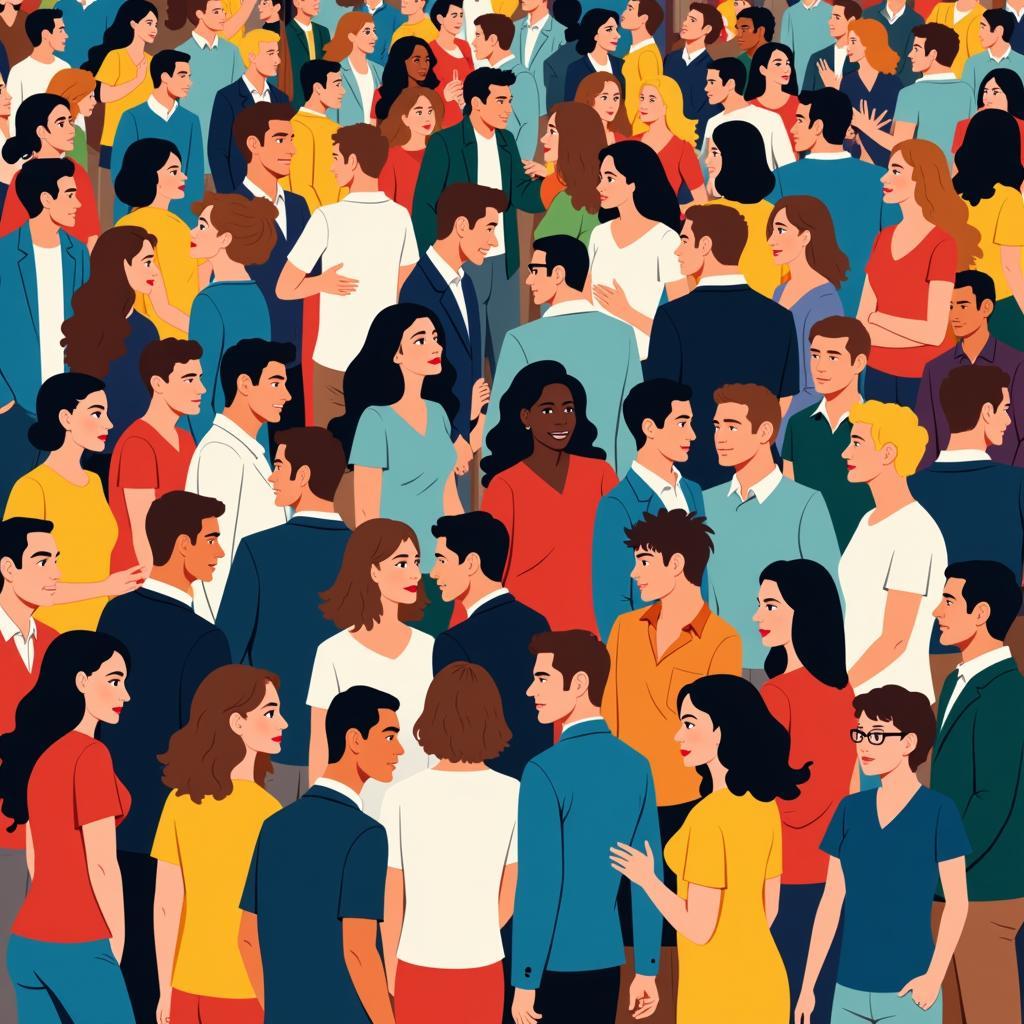The phrase “society at large” often slips into our conversations, but what does it truly mean? At its core, “defining society at large” compels us to examine the intricate tapestry of human connections, shared values, and systems that bind us together. It’s about understanding the multifaceted nature of our collective existence and the forces that shape our lives.
Exploring the Many Layers of “Society at Large”
“Society at large” isn’t confined to geographic boundaries or cultural norms. It encompasses the interconnectedness of communities, nations, and even the entire human race. It’s about recognizing that, despite our differences, we share common needs, aspirations, and a responsibility towards a shared future.
Here are key aspects that contribute to a comprehensive definition of “society at large”:
- Shared Values and Beliefs: While diverse, societies often coalesce around shared values like justice, compassion, and the pursuit of well-being. These values, whether explicitly stated or implicitly understood, influence societal norms and behaviors.
- Social Structures and Institutions: From family units to educational systems and governmental bodies, these structures provide frameworks for interaction, governance, and the transmission of knowledge. Think about how family dynamics, as explored in “Why are families important in society?”, play a crucial role in shaping individuals and, in turn, influencing the larger society.
- Culture and Traditions: The richness of human expression through art, music, literature, and rituals creates a shared cultural heritage. These traditions, passed down through generations, provide a sense of identity and continuity.
- Economic Systems: How we produce, distribute, and consume goods and services has a profound impact on our daily lives and social interactions. Economic systems influence power dynamics, opportunities, and access to resources.
- Technology and Communication: In our increasingly interconnected world, technology has become a powerful force shaping communication, access to information, and even our perceptions of reality. The concept of the “drift society,” as discussed in “Drift Society,” highlights how technology can simultaneously connect and isolate us.
 Defining Society: A Diverse Crowd
Defining Society: A Diverse Crowd
The Power of Individual Actions in Shaping “Society at Large”
While “society at large” may seem like an abstract concept, it’s ultimately the sum of individual actions, choices, and contributions. Each person has the potential to create ripples of change that extend far beyond their immediate circle.
Consider the historical impact of social movements. From the fight for civil rights to the push for gender equality, individuals have come together to challenge injustices and reshape societal norms. Understanding the historical context of “gender roles in puritan society,” as described in “Gender roles in puritan society”, helps us appreciate the progress made and the ongoing need for vigilance in upholding equality.
 Individual Actions, Collective Impact
Individual Actions, Collective Impact
Navigating Challenges and Fostering Positive Change
“Society at large” is not a static entity; it’s constantly evolving in response to internal and external pressures. Challenges like inequality, environmental degradation, and political polarization require collective action and innovative solutions.
By engaging in thoughtful dialogue, embracing empathy, and working towards shared goals, we can create a more just and peaceful world. Understanding the complexities of “complex society”, as detailed in “Definition of complex society”, is essential for navigating these challenges effectively.
FAQs: Understanding “Society at Large”
1. What is the difference between society and “society at large”?
The term “society at large” emphasizes the broader context of human interconnectedness, encompassing multiple communities and groups, rather than focusing on a single, specific society.
2. How can I contribute to a better “society at large”?
Start with small, meaningful actions in your daily life. Treat others with kindness, challenge prejudice, volunteer in your community, and stay informed about social issues.
3. Does globalization make “society at large” more homogeneous?
While globalization increases interconnectedness, it also creates opportunities for cultural exchange and the celebration of diversity.
4. What are some examples of “society at large” facing challenges?
Climate change, economic inequality, and political polarization are all pressing challenges that require global cooperation and action.
5. What role does education play in “society at large”?
Education empowers individuals with knowledge, critical thinking skills, and the ability to contribute positively to their communities and the world.
Need Support? We’re Here to Help
Understanding “society at large” is an ongoing journey of exploration and reflection. If you’re seeking resources, guidance, or simply want to connect, please reach out to us at Society For Peace.
Contact Information:
Phone: 02043854663
Email: [email protected]
Address: Khu 34, Bắc Giang, 260000, Việt Nam.
Our dedicated team is available 24/7 to assist you.